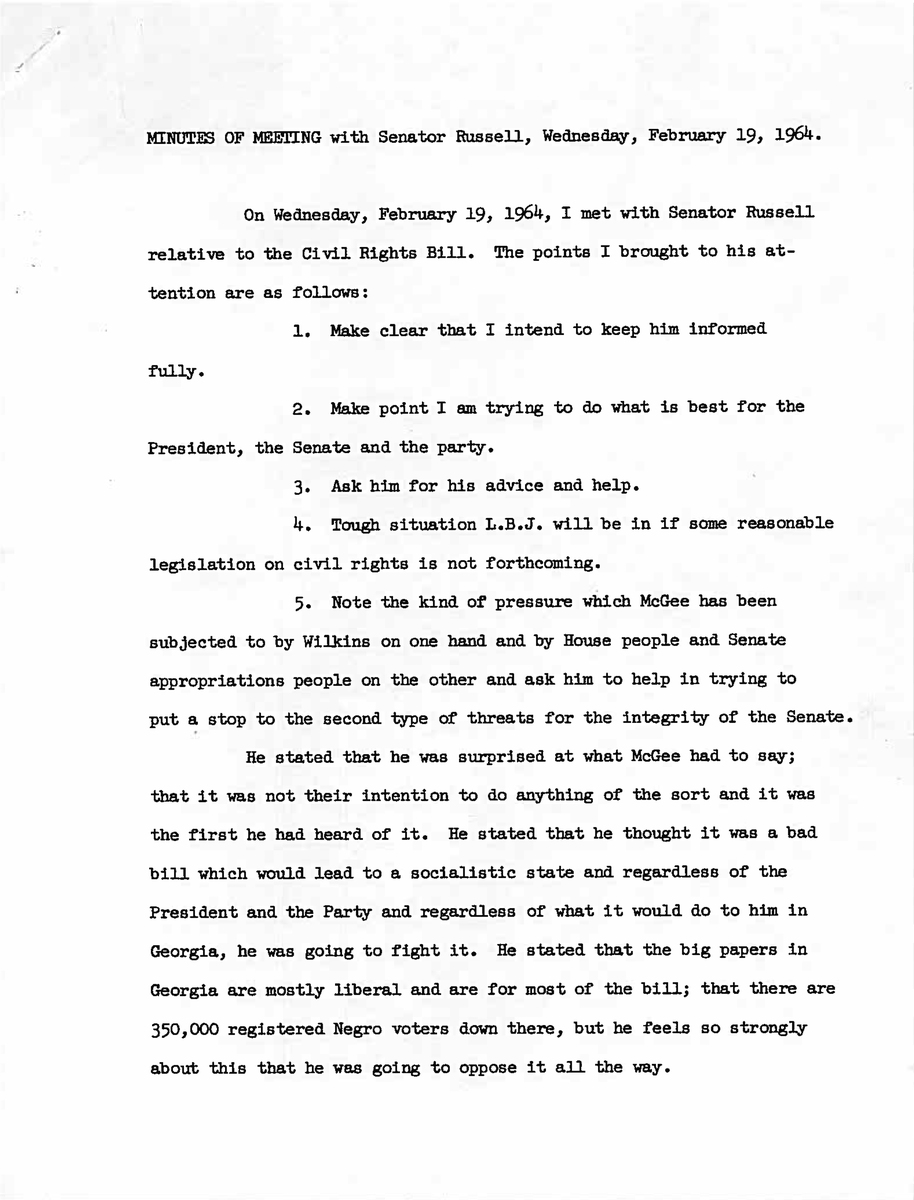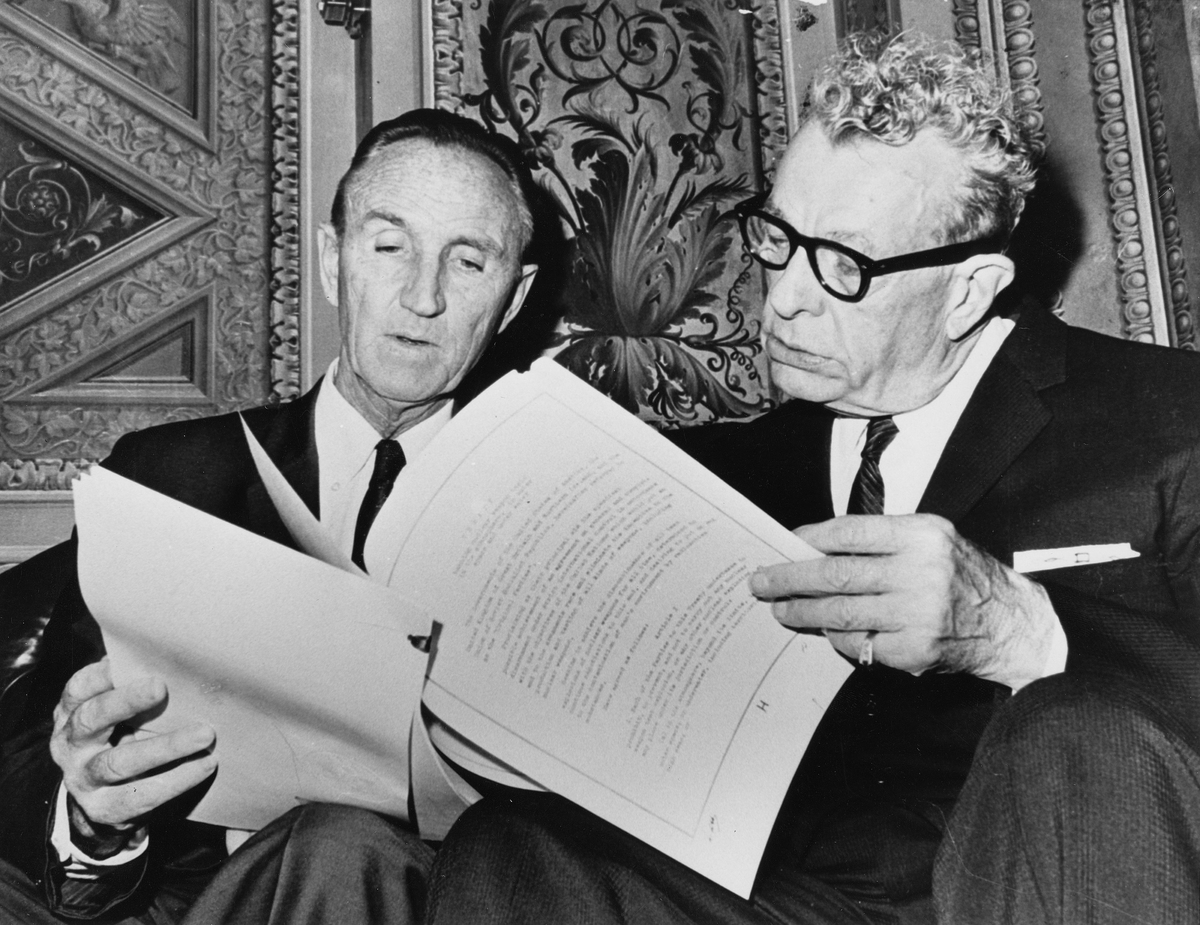Reach Across the Aisle
It was clear from the beginning that the only way civil rights legislation would succeed was if Mike Mansfield reached across the aisle. He relied heavily on Senate Minority Leader Everett Dirksen of Illinois to help him find Republican support. Dirksen met with his Republican Senate colleagues and worked with Mansfield to amend the proposed legislation.
In an interview with his biographer Don Oberdorfer, Mansfield credited Dirksen for his role. "[He] was in large part responsible for the passage of the Civil Rights Act...Dirksen is the one who had to get the votes. Took a long time. Made many visits to his office. Did so deliberately. Wanted to...There would be no civil rights bill without Dirksen." (Interview with Mike Mansfield, November 10, 2000, OH 391-020)
Mansfield also reached out to Georgia Senator Richard Russell, the leader of the opposition to the Civil Rights Act. Before the bill arrived on the Senate floor, Mansfield invited Russell to his office, where he outlined his plan to move the legislation forward and promised there would be no attempts at duplicity.

Minutes of Meeting with Senator Russell, Wednesday, February 19, 1964. Mss 065, Series XXII, Box 28/12, page 1
Mansfield's notes from that meeting illustrate his commitment to diplomacy and civility. He wrote:
"The points I brought to his attention are as follows:
1. Make clear that intend to keep him informed fully.
2. Make point I am trying to do what is best for the President, the Senate and the party.
3. Ask him for his advice and help.
4. Tough situation L.B.J. will be in if some reasonable legislation on civil rights is not forthcoming."
Mansfield told his biographer: "I kept Russell informed of every move that was made on the Civil Rights Bill. I don't think he took me too seriously at first, but he did with the passage of time. No back strokes, no hidden areas." (Interview with Mike Mansfield, November 10, 2000, OH 391-020)


